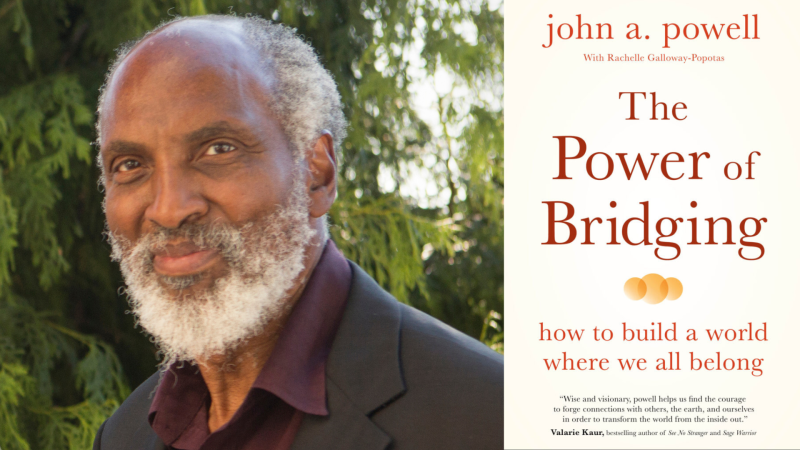On Monday we will, once again, inaugurate Donald Trump as president and, once again, it will come as the country is bitterly divided and often deeply confounded by people with opposing political views. We at Forum thought this would be a perfect time to listen back to our interview with john a. powell. He’s director of UC Berkeley’s Othering and Belonging Institute and his work focuses on communicating, and understanding each other’s humanity, across divides. We talked to him about his institute’s work and his new book “The Power of Bridging.”
Forum From the Archives: john a. powell on Polarization and “The Power of Bridging”

Guests:
john a. powell, director, UC Berkeley's Othering and Belonging Institute; professor of Law, African American and Ethnic Studies at UC Berkeley
Interview Highlights
Understanding Othering and Belonging
John a. powell defines “othering” as not according someone mutual respect, dignity, or equality. It exists on a gradient, from slight disrespect to extreme dehumanization. Belonging, on the other hand, is described as a primal human need – being rooted, grounded, and part of something larger. Powell asserts that “belonging without othering” should be the goal, as historically belonging has often come at the expense of othering outgroups.
Bridging Societal Divisions
The concept of “bridging” is central to powell’s philosophy. He explains it as empathetic listening and maintaining proximity, curiosity, and compassion toward those we perceive as “other.” Bridging differs from persuasion or arguing, instead aiming to understand each other’s fears, perspectives, and common humanity. Powell acknowledges there are times when bridging may not be possible or appropriate due to threats or trauma.
Identity and Structural Change
Powell advises against reducing people solely to specific group identities, as we all have multiple, complex identities. He highlights how rapid societal changes provoke anxiety and the urge to scapegoat perceived “others.” Yet he argues these shifts provide an opportunity to reimagine more inclusive structures and embrace demographic diversity without unnecessarily excluding dominant groups. “Can we bring in black people without pushing out white people? That’s the challenge,” powell states, advocating for bridging amid change. Throughout the discussion, powell underscores that while othering persists, asserting our shared belonging remains crucial. He encourages wrestling with what inclusion means structurally and culturally to build spaces of co-creation where all people feel they authentically belong.
This content was edited by the Forum production team but was generated with the help of AI.